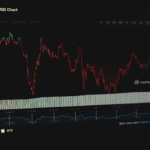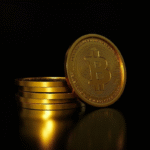
Decentralized Finance (DeFi) has revolutionized the financial industry, introducing a new paradigm where traditional financial intermediaries such as banks and brokers are replaced by blockchain technology and smart contracts. This shift is shaping the future of finance, making it more accessible, transparent, and efficient. Several key trends are driving this transformation, including the growth of decentralized exchanges (DEXs), lending platforms, and synthetic assets.
The Rise of Decentralized Exchanges (DEXs)
Decentralized exchanges (DEXs) are reshaping how people trade digital assets. Unlike centralized exchanges (CEXs), DEXs operate on smart contracts, allowing users to trade cryptocurrencies without the need for an intermediary. Platforms like Uniswap, SushiSwap, and PancakeSwap have gained massive popularity for their user-friendly interfaces and non-custodial trading options.
The appeal of DEXs lies in their ability to enhance privacy, reduce costs, and offer greater transparency compared to traditional exchanges. As they continue to evolve, DEXs are likely to incorporate more advanced features, including cross-chain interoperability, which will allow seamless asset transfers between different blockchains. This trend is expected to accelerate the growth of DeFi by creating a more integrated and efficient ecosystem for digital asset trading.
Decentralized Lending and Borrowing Platforms
Lending and borrowing are fundamental financial services, and DeFi is transforming these sectors by eliminating the need for traditional financial institutions. Platforms like Aave, Compound, and MakerDAO enable users to lend and borrow cryptocurrencies without intermediaries, offering attractive interest rates based on supply and demand dynamics.
These platforms provide more flexibility and autonomy for users by leveraging over-collateralized loans and automated liquidations. Moreover, DeFi lending protocols offer users the ability to earn passive income by supplying liquidity to the market. This aspect of DeFi has gained significant traction, with the total value locked (TVL) in DeFi lending protocols surpassing billions of dollars.
Synthetic Assets and Tokenization
Another significant trend in the DeFi space is the rise of synthetic assets and tokenization. Synthetic assets are digital representations of real-world assets, such as commodities, stocks, or currencies, which are created through smart contracts on blockchain platforms. Protocols like Synthetix allow users to create and trade synthetic assets, providing exposure to traditional asset classes without the need for physical ownership.
Tokenization also extends to real-world assets (RWAs), where tangible items like real estate, art, or even invoices are represented as tokens on the blockchain. This innovation allows for fractional ownership and democratizes access to asset classes that were previously reserved for institutional investors. As DeFi matures, the integration of synthetic assets and tokenized RWAs will likely continue to disrupt traditional finance, offering more diverse investment options.
DeFi’s Disruption of Traditional Finance
The disruptive potential of DeFi lies in its ability to decentralize financial services, offering alternatives to traditional banking systems. DeFi challenges the monopoly of centralized institutions by removing barriers, lowering transaction costs, and increasing accessibility for underserved populations. With DeFi, anyone with an internet connection can access financial services like lending, borrowing, and trading.
However, the DeFi ecosystem is not without its challenges. Issues such as regulatory uncertainty, smart contract vulnerabilities, and market volatility remain concerns. Despite these hurdles, the market is rapidly evolving, with growing interest from institutional players and a surge in innovations aimed at mitigating risks.
The Future of DeFi: A New Financial Landscape
As the DeFi market continues to grow, its influence on traditional finance is becoming increasingly apparent. The integration of decentralized solutions with real-world assets, coupled with advancements in decentralized governance, will likely play a critical role in shaping the future of the financial industry. DeFi’s potential to enhance transparency, efficiency, and inclusivity makes it a formidable force in the evolving financial landscape.
In the years ahead, we can expect DeFi to expand beyond its current boundaries, offering more sophisticated financial instruments and attracting a broader audience. With continued development in decentralized identity, security solutions, and cross-chain technologies, DeFi has the potential to redefine global finance.
Discover Blockchain Excellence with Kenson Investments
At Kenson Investments, we offer top-tier digital asset support to help you navigate crypto asset markets. Our team of digital asset specialists is dedicated to providing legitimacy and transparency in blockchain asset investments.
Call now to explore how we can help you in this dynamic market!
Disclaimer: The information provided on this page is for educational and informational purposes only and should not be construed as financial advice. Cryptocurrency assets involve inherent risks, and past performance is not indicative of future results. Always conduct thorough research and consult with a qualified financial advisor before making investment decisions.
“The cryptocurrency and digital asset space is an emerging asset class that has not yet been regulated by the SEC and US Federal Government. None of the information provided by Kenson LLC should be considered financial investment advice. Please consult your Registered Financial Advisor for guidance. Kenson LLC does not offer any products regulated by the SEC, including equities, registered securities, ETFs, stocks, bonds, or equivalents.”














